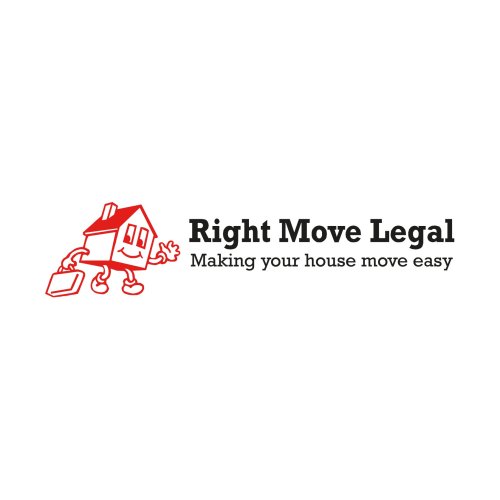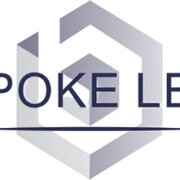Best Conveyancing Lawyers in New Zealand
Share your needs with us, get contacted by law firms.
Free. Takes 2 min.
Free Guide to Hiring a Real Estate Lawyer
Or refine your search by selecting a city:
List of the best lawyers in New Zealand
About Conveyancing Law in New Zealand
Conveyancing is the legal process of transferring ownership of property from one person or entity to another. In New Zealand, conveyancing typically involves the buying, selling, or transferring of freehold, leasehold, or unit title properties. The process ensures all legal and financial obligations are met, including preparing and reviewing sale and purchase agreements, conducting property searches, arranging finance documents, and lodging the change of ownership with Land Information New Zealand (LINZ). Conveyancing is a crucial aspect of real estate transactions and helps protect the interests of all parties involved.
Why You May Need a Lawyer
While some straightforward transactions can be managed without a lawyer, legal assistance in conveyancing is highly recommended for several reasons. Common situations where people seek legal help include:
- Buying or selling a home or investment property
- Transferring property ownership due to relationship changes or inheritance
- Obtaining a mortgage or refinancing a property
- Dealing with unit titles, cross-lease, or company share arrangements
- Resolving disputes over boundaries, easements, restrictive covenants, or agreements
- Compliance with government regulations including anti-money laundering checks
Lawyers can identify potential legal issues, ensure all documentation is correct, and safeguard your financial and legal interests throughout the conveyancing process.
Local Laws Overview
Conveyancing in New Zealand is governed by a combination of statutes, regulations, and common law. Key aspects relevant to conveyancing include:
- Land Transfer Act 2017: This Act sets out the framework for land registration and property ownership transfer. All changes in title or registration must be completed through LINZ's electronic system.
- Sale and Purchase Agreement: This is a legally binding contract between the buyer and the seller. Standard forms are widely used but may require special conditions or legal review to suit the parties' needs.
- Anti-Money Laundering and Countering Financing of Terrorism Act (AML/CFT): Lawyers must verify the identity of clients as part of due diligence requirements under this legislation.
- Resource Management Act 1991: This regulates land use, planning, and development. Certain consents or conditions may apply depending on the property and its intended use.
- Overseas Investment Act 2005: Non-resident buyers may need approval to purchase certain types of property.
- Body Corporate and Unit Titles Act 2010: Applies to unit titles and apartment purchases, requiring disclosure statements and management obligations.
Various standard forms and procedures exist, but it's important to have an experienced professional ensure compliance with legal requirements and to handle complexities that may arise.
Frequently Asked Questions
What is conveyancing?
Conveyancing is the legal transfer of property ownership from one party to another. It involves legal checks, preparing documentation, and ensuring settlement and registration are properly completed.
Do I need a lawyer or can I use a conveyancer?
In New Zealand, only lawyers or registered conveyancers can carry out conveyancing work. Most people use a lawyer as they can also provide advice on more complex legal matters that may arise.
How long does the conveyancing process usually take?
The process can take anywhere from a few days to several weeks depending on the complexity of the transaction, whether there are conditions to be satisfied, and how quickly all parties complete required steps.
What are some common costs involved in conveyancing?
Standard costs include legal fees, LIM reports, title searches, registration fees, and in some cases, valuation fees or building inspections. Your lawyer should provide a detailed quote upfront.
What is a LIM report and do I need one?
A Land Information Memorandum (LIM) is a report from the local council showing information such as zoning, building consents, and flooding risks. It is highly recommended to get a LIM before buying property.
What does unconditional mean in a sale agreement?
Once a sale agreement becomes unconditional, it means all requirements or conditions (such as finance approval or satisfactory building inspection) have been met and the transaction is binding on both parties.
Can I cancel the contract after signing?
If the contract is conditional and conditions are not satisfied by the due date, you may be able to withdraw. Once the contract is unconditional, cancelling may only be possible in limited circumstances and could involve penalties.
What happens on settlement day?
On settlement day, the buyer pays the purchase price (usually through their lawyer), the title to the property is transferred, and keys are handed over. The lawyer ensures all steps comply with legal requirements.
What are the risks of not using a lawyer?
Without legal advice, you may miss hidden issues such as restrictive covenants, caveats, unconsented building work, or other legal complexities, potentially leading to future disputes or financial loss.
How are property disputes resolved?
Many disputes can be resolved through negotiation or mediation with the help of a lawyer. More serious matters may require litigation in the Disputes Tribunal or the Courts depending on the amount or nature of the dispute.
Additional Resources
If you need more information or support regarding conveyancing in New Zealand, you may find the following resources helpful:
- New Zealand Law Society - Provides guidance and listings of qualified lawyers
- Land Information New Zealand (LINZ) - Official property titles and registration body
- Community Law Centres - Free legal help for those who qualify
- Citizens Advice Bureau - General information and referral services
- Ministry of Justice - Information on property and land law
- Your local council - For LIM reports and property information
Next Steps
If you believe you need legal assistance with conveyancing, consider the following steps:
- Identify and contact a qualified property lawyer or conveyancer familiar with New Zealand law
- Prepare all relevant documents and information regarding the property, such as the sale agreement, title documents, LIM, or loan approval
- Discuss your goals, timelines, and any potential concerns with your lawyer at the outset
- Obtain a clear estimate of legal fees and expected costs involved
- Follow your lawyer's advice on signing documents, fulfilling contractual obligations, and completing settlement
An experienced lawyer will guide you through the process, answer your questions, and ensure a smooth and legally sound property transaction.
Lawzana helps you find the best lawyers and law firms in New Zealand through a curated and pre-screened list of qualified legal professionals. Our platform offers rankings and detailed profiles of attorneys and law firms, allowing you to compare based on practice areas, including Conveyancing, experience, and client feedback.
Each profile includes a description of the firm's areas of practice, client reviews, team members and partners, year of establishment, spoken languages, office locations, contact information, social media presence, and any published articles or resources. Most firms on our platform speak English and are experienced in both local and international legal matters.
Get a quote from top-rated law firms in New Zealand — quickly, securely, and without unnecessary hassle.
Disclaimer:
The information provided on this page is for general informational purposes only and does not constitute legal advice. While we strive to ensure the accuracy and relevance of the content, legal information may change over time, and interpretations of the law can vary. You should always consult with a qualified legal professional for advice specific to your situation.
We disclaim all liability for actions taken or not taken based on the content of this page. If you believe any information is incorrect or outdated, please contact us, and we will review and update it where appropriate.
Browse conveyancing law firms by city in New Zealand
Refine your search by selecting a city.
















